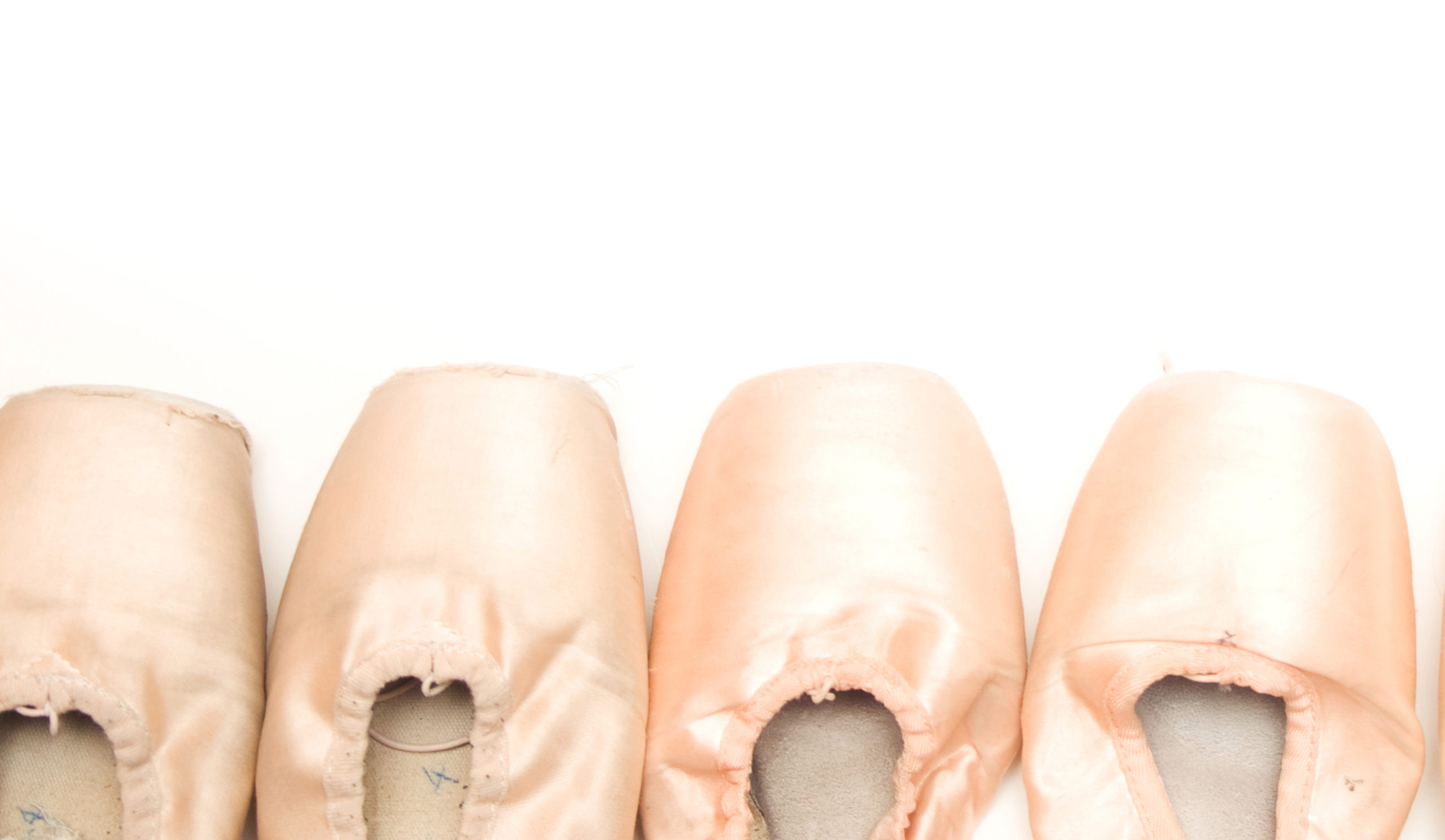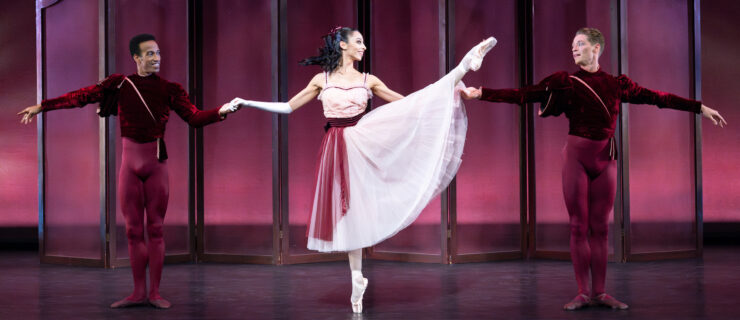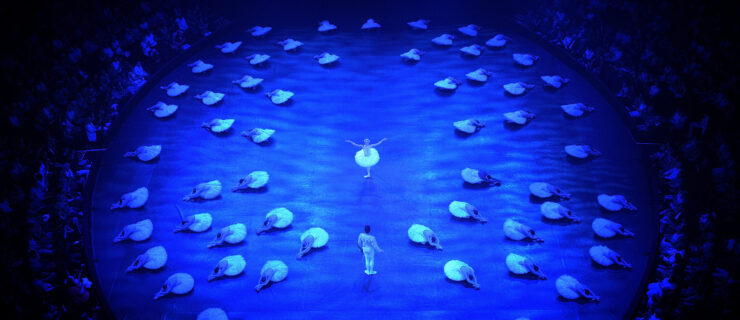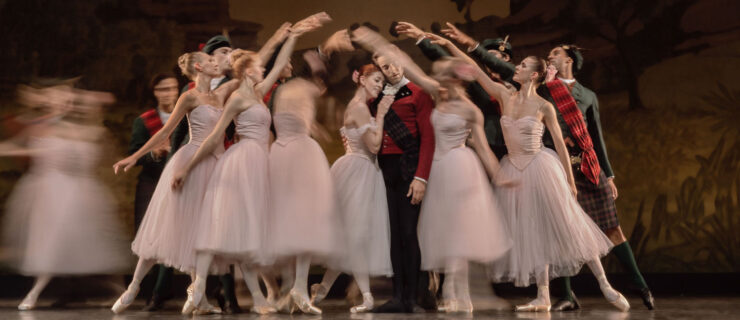Paving Their Way
Times have changed. College used to be seen as incompatible with a ballet career. But dancers, with their fierce determination, are changing the rules—and doing it on their own terms. Many professionals enroll in school part-time. Other dancers go the four-year–college or conservatory route. Each path has its own challenges, but with perseverance, all are feasible.
Kristina Bentz
The Juilliard School
When Kristina Bentz decided to head to college, her ballet teachers thought she was making a mistake. “I didn’t see it that way,” says Bentz. “Dance is a short career. You need academics to back it up.” Both a talented ballet dancer and accomplished academically, she chose Juilliard because the conservatory setting allowed her to spend most of her time dancing, and, through Juilliard’s Columbia University/Barnard College exchange program, she could take challenging liberal arts courses as well.
Her daily schedule is packed with classes in ballet and modern, plus—depending on the day—partnering, Alexander technique, composition or dance electives. Rehearsals take up almost every weeknight. In addition to one course at Columbia, she has two or three dance-related academics per semester. “One class, called Elements of Performing, helped me realize that the slightest thing, like eye focus, can enhance or detract from a performance,” she says. Bentz works on homework at night and on weekends. Sometimes, though, the long days get the better of her. “I get worn out and frustrated a lot,” she admits. “I try to stay positive by giving myself pep talks.”
But her modern classes have piqued her interest, and the former bunhead now hopes to join a company like Cedar Lake Contemporary Ballet or Complexions after graduation. (Juilliard grads grace both company rosters.) Says Bentz, “Now I like not being on my leg all the time.”
Erica Johnston
Butler University
Erica Johnston had her heart set on Butler since middle school, when a ballet teacher recommended its dance program. Johnston was impressed with their student performance company, Butler Ballet, and the high caliber of their dancers. (Recent alumni dance with Louisville Ballet, Ballet San Jose and Sarasota Ballet.) She also liked the university’s high academic standards and small size. “I think that’s important in terms of student-faculty relationships,” she says.
She enrolled as a dance performance major, and is working on a minor in marketing. Johnston admits that she finds the dance program’s technical standards intimidating. “The faculty comes from all over the world,” she says, “so I’ve had to adapt quickly to many different styles. And they don’t let you slack—they demand excellence.”
Her day begins with academics, such as sociology or Laban Movement Analysis, followed by jazz or modern. After lunch, she has a writing class, then ballet, pointe, piano and rehearsals. She has additional rehearsals on Saturdays, too. She carries her laptop at all times so she can squeeze in homework during rehearsal breaks or between classes. On weekends, she enjoys spending time with students from other departments to decompress. “We get to have a life outside of dance, too.”
After graduation, Johnston, who is 5′ 11″, hopes to join a contemporary ballet or modern company likes LINES or Mark Morris Dance Group. But regardless of where she ends up, she’s glad she’ll have a degree to back her up. “I’m wide open to any opportunity,” she says.
Claire Kretzschmar
Fordham University
Claire Kretzschmar always knew one thing for certain: She wanted to dance. When New York City Ballet offered her an apprenticeship last November, she didn’t think twice about saying “yes.” But she was also thinking ahead. “Going to college part-time will make the inevitable transition to a new career easier,” she says.
She enrolled at the Fordham College of Liberal Studies, a special program for working adults at Fordham University. Not only is her school conveniently located one block from the theater, but the course offerings also fit into her performance schedule. Now in the corps, Kretzschmar limits herself to two classes per semester, scheduling one on Monday, her day off, and the other for Tuesday and Friday mornings before company class. She typically does a bit of homework after getting home from performances around 10 or 11 and finishes the rest in the morning.
She hasn’t chosen a major yet, but has taken a wide variety of classes in English, science and even theater. Kretzschmar feels school gives her an added perspective that she believes enhances her dancing. “Sometimes I’ll apply a character’s feelings from a novel to a certain ballet,” she says. “College also gives me another focus, so I’m not always worrying about dance.”
Kretzschmar hopes to graduate in six years—and since she was able to transfer high school advanced placement credits, she’s already a sophomore. She wants to perform as long as possible before transitioning to another career related to dance. “Or maybe something different!” she says. “I just know that I want to earn a degree so that when my performing career is over I’ll be able to do something I love just as much.”
Amy Brandt is
Pointe’s “Ask Amy” columnist.





